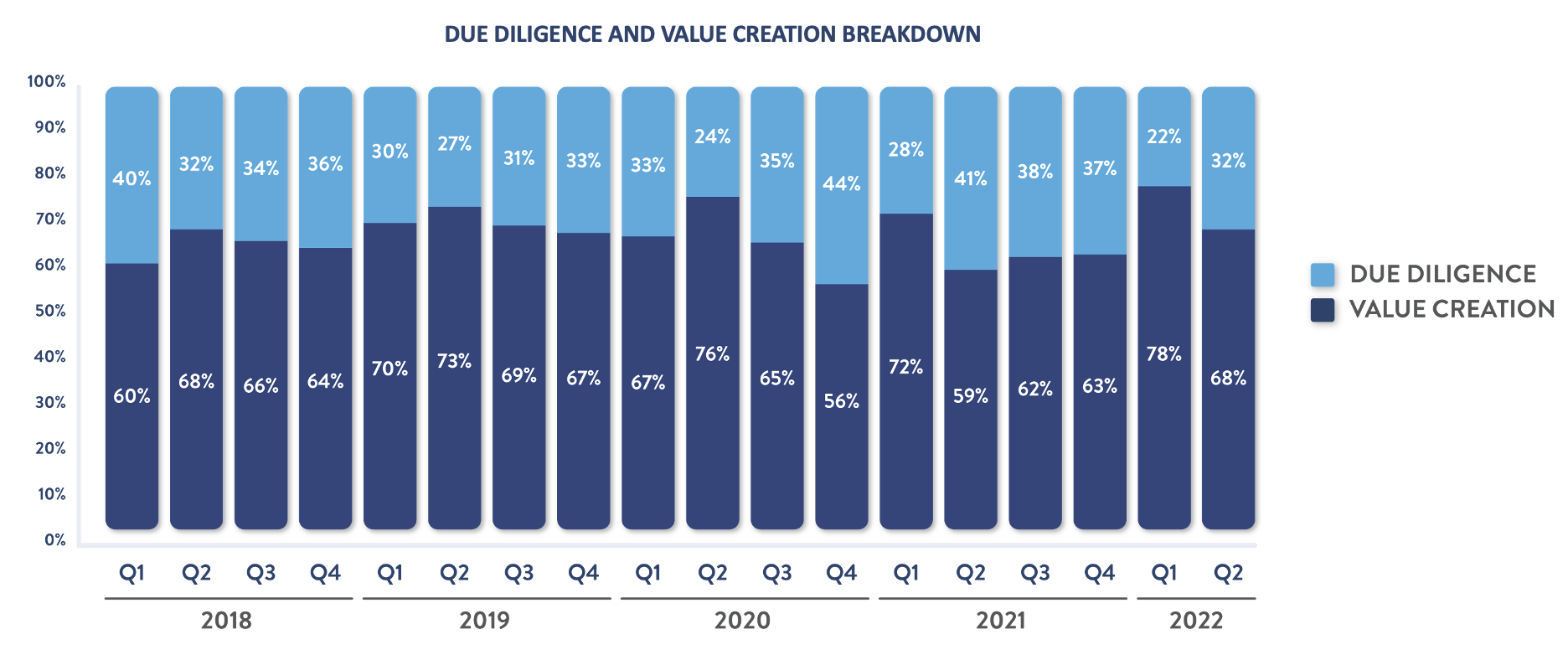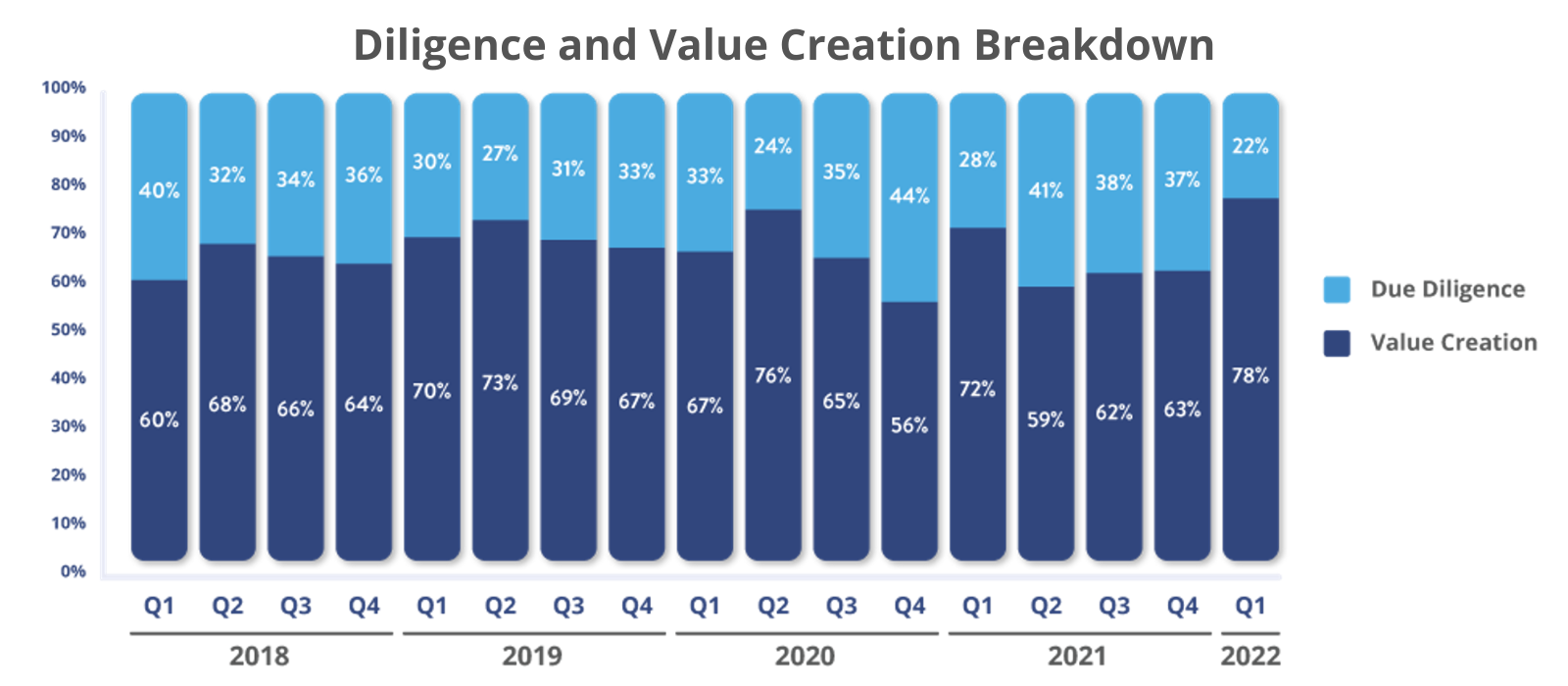We recently spoke with Mark DeBlois and Rufus Clark, two of the Co-Founders and Managing Partners of Bunker Hill Capital, a private equity firm investing in entrepreneur and founder-owned lower middle market companies in North America. Bunker Hill has offices in Boston, MA and San Diego, CA.
The four partners at Bunker Hill have worked together for over 20 years as private equity investors with lower middle market companies. As lead investors, they actively work with portfolio companies leveraging their extensive board-level and strategic planning experience.
When I caught up with them on the journey of Bunker Hill Capital, it was refreshing to hear how, in a world consumed with change, nothing can quite replace years of dedicated experience, a focus on relationships, and a time-tested investment ethos.
Tell us about the founding of Bunker Hill Capital.
We were senior members of the buyout team at BancBoston Capital, one of the largest bank-affiliated investment companies in the US, and it became increasingly apparent that going it alone would allow us to control our own destiny. Having a private equity mindset is different from how a commercial bank approaches investing, and we wanted to manage the business without these inherent limitations. Also, being able to change our investment strategy and how we invested was just as important.
An example is our ability to work closely with a variety of value-added partners including operating professionals and strategy consultants. Our relationships with them are a cornerstone of how we invest, proactively create value, and build relationships across the marketplace. As part of establishing Bunker Hill Capital, we were able to develop relationships with a wide range of strategic partners that was not possible when part of a large institution.
So, we spun out to start our own firm, Bunker Hill Capital, just under two decades ago.
Since then, how has the market changed?
The transaction dynamics have changed with the growth in the alternative asset class. The amount of capital flowing into the asset class has increased dramatically as has the number of PE funds, pushing up multiples over time.
Our core market, the lower middle market, includes companies with revenues between $5 million and $100 million—of which there are approximately 360,000 in the United States today. Compare that to the next level up, where there are about 22,000 companies with revenue between $100 million and $500 million, so our opportunity pool is 16 times larger.
In our market, we can source deals either as one-off deals directly from owner-entrepreneurs as sellers, through intermediaries such as accountants and attorneys, or through limited auctions, where an investment bank brings together people they know who can close deals and who have years of experience in the lower middle market, such as ourselves.
So, it’s actually the market dynamics in this end of the lower middle market that have not changed as dramatically that allow us to continue to reap the benefits.
An area where we have seen change is increasing prices in each market segment. However, as much as they have all gone up, the relative delta between the lower and upper middle markets has remained constant. For example, hypothetically as the first PE owner we may pay between 6.5x and 7x on EBITDA for the companies we invest in (compared to 2003, which was 5-6x). We then sell these companies to strategic buyers or the next market level up—large PE funds that pay between 8x to 10x on EBITDA multiples. So when we sell our companies to these strategic buyers, we capitalize on this multiple arbitrage.
What differentiates Bunker Hill Capital?
Bunker Hill Capital is well-known in the lower middle market, having been in this market segment for over 20 years, which is very unusual.
We are unique in that we have the luxury of staying in the smaller end of the market. People tend to think bigger is better. We think we can have more impact strategically on these smaller companies over a shorter period of time, compared with the larger deals that are more like steamships: huge and take a lot longer to turn.
Our key criteria for buying companies is to be the first PE owner buying from founders and owner-entrepreneurs who either want to remain in the business or have identified their management team. This is 70 to 80 percent of our deals.
This is important because these founders are looking to crystalize the value of their sweat equity, and take some of their chips off the table for a variety of reasons. Finding a partner who will risk their own money to do this and take the company to the next level is key. The founder can then continue to enjoy the benefit of their minority capital stake, thereby continuing to increase their wealth by getting a “second bite of the apple.”
We do extensive strategy and infrastructure work at the companies we buy to allow them to scale. The larger funds, in the next level up, buy from folks like us as they can’t grow just organically; they need to grow through acquisition to get the kind of returns and exit multiples to satisfy their investors. Therefore, by definition, they must combine organic growth with acquisitions. And that’s where we come in.
How is Bunker Hill approaching the investment process to generate differentiated returns?
Early on from Fund I we refined our due diligence process, such as building relationships with our network of strategic partners. A lot of these refinements we did during Fund I, so the due diligence process we have now follows the same repeatable model. This has resulted in a time-tested methodology.
We believe the 20+ year evolution of our methodical investment process is world-class. Being a fiduciary to our limited partners, we are very hands-on in the businesses we invest in. We collaborate closely with our management teams and give them the tools they’ve never had before to better serve the business.
Post-close, we go through a 90- to 120-day strategic planning process to implement the findings from our detailed pre-sale due diligence and formalize the strategy into what we call a “Full Potential Roadmap.” This is coupled with a “Key Initiative Tracker,” which breaks down the Roadmap into an implementable plan, and is then tracked and monitored weekly and/or monthly with clear accountability and performance-based outcomes.
Finally, this plan is driven by the growth initiatives we are going after and how we want to scale the business’ revenue. But perhaps more rewarding is that after going through the process, most of the CEOs thank us for these invaluable tools that help them empower their own people, hold them accountable, and transform their business.
How is working with a Founder-Owned business unique?
Owner-entrepreneurs and founders can run the spectrum on experience and/or business sophistication, so identifying where along this spectrum the founder is and recognizing this is part of our due diligence process.
We place enormous emphasis on these founder relationships and if the chemistry is not quite right, we may decide not to proceed for the benefit of all parties. This is where the buck stops, especially if the owner is critical to the business.
Working with a wide variety of owners and CEOs is like working with any new person. We don’t delegate this relationship down to junior staff, as it is very personal at the managing partner level. You have to quickly figure out their strengths, growth opportunities, skills, and communication style, and we have to work with all of this while going through complex transactions – working through strategy, implementation, and everything else that goes along with the transaction.
Sometimes the owner is the CEO, and sometimes that’s not the case. The strongest CEOs are proactive and are on top of the Key Initiative Tracker. Some of the best CEOs we have worked with are self-aware enough to know where their highest value is in their role with the new company, including using the Key Initiative Tracker to mentor and track their direct reports, and then leading the charge on implementing these growth initiatives throughout the organization.
Can you talk about the role of ESG in Private Equity?:
ESG is a hot topic now. Most PE firms were doing a portion of this before it really got labeled. We were always doing environmental and social due diligence with potential investments.
Historically, we have intentionally looked at where the company could be more environmentally friendly and socially aware. Examples include increasing the recycling of waste materials, cutting down on energy consumption, and recruiting the most qualified candidates for roles.
Within our Key Initiative Tracker, we formalized this by putting in a group of ESG initiatives and being more explicit about it with our companies.
For example, we are being more proactive when we are sourcing overseas with a supplier code of conduct that includes detailed standards that our suppliers have to abide by.
On the social side, we have a strong bench of DEI candidates throughout our companies. DEI is built into our recruiting approach when hiring the most qualified person for the job.
For someone entering Private Equity in today’s landscape, what advice would you offer to them?
Find partners you can trust and work with. There are lots of ups and downs. You work hard and go through a lot— it can be very rewarding, but you need to have trusted partners over a long period of time.
You don’t know what you don’t know, and like everything else there is an evolution. There is no replacement for experience. It is complex enough doing what we do, and over the past couple of decades we have been able to cultivate relationships and refine our process along with the types of companies we invest in.
Also, don’t be afraid to surround yourself with smart people, not only inside the GP but also with your outside advisors. The relationships we have with our world-class executive network have been mutually beneficial. For example, our CEOs that are still assisting in our deals 20 years later is only something you can build over time. You can’t flip a switch and say, “I want that Day One.” It comes with being in the trenches together over a long period of time.
Interested in hearing what other PE experts have said in our interview series? Check them out here.












